Ocean-bound plastic (OBP) is post-consumer trash that has been recovered from coastalareas. 80% of plastic in the ocean comes from land, so by collecting plastic waste fromwaterways, coastlines and riverbanks (within 50km of the shore) we're able to prevent that flowand help protect the ocean.

Let's turn the tide on marine plastic
Bin liners made from 60% ocean plastic* to help clean your home and our seas.

Let's turn the tide on marine plastic
Bin liners made from 60% ocean plastic* to help clean your home and our seas.

Let’s turn the tide
on marine plastic



Made from trash
Made from trash
Made from trash
These rubbish bags are made from ocean-bound plastic that has been recovered from coastlines and waterways.
These rubbish bags are made from ocean-bound plastic that has been recovered from coastlines and waterways.
For your trash
For your trash
For your trash
These bin liners are designed to carry general waste destined for landfill.
These bin liners are designed to carry general waste destined for landfill.
Reduce ocean waste
Every roll saves the equivalent of 4x 1L plastic bottles from washing out to sea.
The ocean needs our help.
The ocean needs our help.
Plastic waste is choking our oceans, killing marine life and threatening eco-systems. It’s estimated that, without drastic action, the amount of plastic trash flowing into the seas will triple by 2040.
Each and every one of us can make a difference in the fight against ocean plastic.
Plastic waste is choking our oceans, killing marine life and threatening eco-systems. It’s estimated that, without drastic action, the amount of plastic trash flowing into the seas will triple by 2040.
Each and every one of us can make a difference in the fight against ocean plastic.
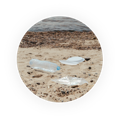
Did you know?
8 million tonnes of plastic ends up in our oceans every year. Indonesia is currently ranked as the one of the world’s worst marine plastic polluters. But regardless of origin, ocean plastic affects us all.
If we can't curb the flow, it is predicted that there will be more plastic than fish in the ocean by 2050.
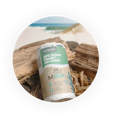
We’re taking action!
We recycle ocean bound plastic (post-consumer trash), which has been collected from up to 50km of South East Asian shorelines.
That sounds like a big area but it allows for collection along river banks that lead to the ocean because 80% of plastic in the ocean comes from land.
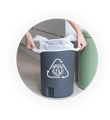
Make the change
Discarded plastic waste is collected, balled up and processed into usable recycled plastic.
The supply chain is independently audited by SEArcular. The Ecopack tidy bags you'll find in the supermarket are made with 60% recycled ocean plastic.

Did you know?
8 million tonnes of plastic ends up in our oceans every year. Indonesia is currently ranked as one of the world’s worst marine plastic polluters. But regardless of origin, ocean plastic affects us all.
If we can’t curb the flow, it is predicted that there will be more plastic than fish in the ocean by 2050.



We’re taking action!
We recycle ocean bound plastic (post-consumer
trash), which has been collected from up to 50km
of South East Asian shorelines.
That sounds like a big area but it allows for
collection along river banks that lead to the ocean
because 80% of plastic in the ocean comes from land.

Make the change
Discarded plastic waste is collected, baled up and processed into usable recycled plastic.
The supply chain is independently audited by SEArcular. The Ecopack tidy bags you'll find in the supermarket are made with 60% recycled ocean-bound plastic.


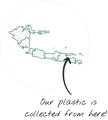

Sourced to improve livelihoods
This plastic was prevented from entering the ocean in Indonesia’s coastal area of Surabaya. Surabaya is Indonesia’s second largest city and has a serious plastic pollution problem.
By using plastic recovered from here we’re contributing to improved livelihoods and helping empower coastal communities.
This plastic was prevented from entering the ocean in Indonesia’s coastal area of Surabaya. Surabaya is Indonesia’s second largest city and has a serious plastic pollution problem.
By using plastic recovered from here we’re contributing to improved livelihoods and helping empower coastal communities.

Sourced to improve livelihoods
This plastic was prevented from entering the ocean in Indonesia’s coastal area of Surabaya. Surabaya is Indonesia’s second largest city and has a serious plastic pollution problem.
By using plastic recovered from here we’re contributing to improved livelihoods and helping empower coastal communities.
This plastic was prevented from entering the ocean in Indonesia’s coastal area of Surabaya. Surabaya is Indonesia’s second largest city and has a serious plastic pollution problem.
By using plastic recovered from here we’re contributing to improved livelihoods and helping empower coastal communities.
Traceable Supply Chain
This plastic was prevented from entering the ocean in Indonesia’s coastal area of Surabaya. Surabaya is Indonesia’s second largest city and has a serious plastic pollution problem.
By using plastic recovered from here we’re contributing to improved livelihoods and helping empower coastal communities.
Greencore carefully curates a network of plastic suppliers from the Indonesian waste pickers at bottom of the chain up to the top. Regular audits are conducted to ensure full traceability.
Plastic collected by Greencore is certified ocean-bound plastic, by independent third-party Control Union. Thanks to our combined efforts, ocean plastic pollution is prevented at scale, reducing harm to ecosystems and local populations.

Discarded plastics are picked up by plastic collectors
('pemulung") from areas at risk of ocean plastic pollution.
This plastic was prevented from entering the ocean in Indonesia’s coastal area of Surabaya. Surabaya is Indonesia’s second largest city and has a serious plastic pollution problem.
By using plastic recovered from here we’re contributing to improved livelihoods and helping empower coastal communities.

Waste shops are small scrap aggregators who collect, store and bale waste material collected and purchased from pemulung.

Bigger aggregators ("pengepul")
get the plastic from multiple waste shops and consolidate volumes.

Recycled OBP is manufacutred into secondary raw material flakes/pellets at Greencore's
Indonesian factory in East Java.
Traceable Supply Chain
Greencore carefully curates a network of plastic suppliers from the Indonesian waste pickers at bottom of the chain up to the top. Regular audits are conducted to ensure full traceability.
1.
Discarded plastics are picked up by plastic collectors
('pemulung") from areas at risk of ocean plastic pollution.
2.
Waste shops are small scrap aggregators who collect, store and bale waste material collected and purchased from pemulung.
1.
Discarded plastics are picked up by plastic collectors
('pemulung") from areas at risk of ocean plastic pollution.
2.
Waste shops are small scrap aggregators who collect, store and bale waste material collected and purchased from pemulung.
3.
Bigger aggregators ("pengepul")
get the plastic from multiple waste shops and consolidate volumes.
4.
Discarded plastics are picked up by plastic collectors
('pemulung") from areas at risk of ocean plastic pollution.
3.
Bigger aggregators ("pengepul")
get the plastic from multiple waste shops and consolidate volumes.
4.
Discarded plastics are picked up by plastic collectors
('pemulung") from areas at risk of ocean plastic pollution.
Got Questions?
Got Questions?
What is ocean-bound plastic?
What is the compostition of the bags?
We have two ranges. The premium range which you'll see in the supermarket contains 60%ocean-bound plastic (the remaining 40% is regular virgin plastic needed for strength). Theindustrial range (bulk packed and low cost for commercial use) contains 20% ocean-boundplastic plus another 30% regular recycled plastic.
Does it make a difference to the environment?
Like all sustainability measures every little bit helps. Every roll of 60% OBP that you buy saves theequivalent of approximately 4x 1L plastic bottles from ending up in our oceans. Using OBP in ourproducts means that we are intercepting plastic waste at the source, putting less reliance onvirgin plastics, reducing the flow of pollution headed offshore, protecting sea life, andsupporting local communities.
Why use ocean plastic?
The ocean needs our help. Plastic waste is choking our oceans, killing marine life andthreatening ecosystems. But each one of us can make a difference by making smart consumerchoices.
How big is the problem?
8 million tons of plastic ends up in our oceans every year, which accounts for approximately80% of marine debris. It is predicated that at current rate of pollution there will be more plasticthan fish in the sea by 2050.
Where is the ocean-bound plastic collected from?
We're currently using recycled ocean-bound plastic collected from beaches and shorelines inSouth East Asia. These areas have terrible marine pollution and little structured wastemanagement. Reglardless of where the raw OBP material comes from, if allowed to flow intothe ocean it's a problem for all of us!
How do I dispose of my waste?
By using an ocean recycled bag you’re being part of the solution, enabling prevention of furthermarine plastic pollution. These bin liners are designed to carry general waste destined forlandfill.
Where is the ocean-bound plastic collected from?
Our ocean plastic bin liners carry the SEArcular stamp. SEArcular is an ocean bound plastic initiative by Greencore
(a global recycling group). The entire supply chain is audited and traceable - from the waste pickers on the beach
to the plastic suppliers.
Frequently asked questions (FAQ)
Got Questions?
Got Questions?
What is ocean-bound plastic?
Ocean-bound plastic (OBP) is post-consumer trash that has been recovered from coastalareas. 80% of plastic in the ocean comes from land, so by collecting plastic waste fromwaterways, coastlines and riverbanks (within 50km of the shore) we're able to prevent that flowand help protect the ocean.
What is the compostition of the bags?
We have two ranges. The premium range which you'll see in the supermarket contains 60%ocean-bound plastic (the remaining 40% is regular virgin plastic needed for strength). Theindustrial range (bulk packed and low cost for commercial use) contains 20% ocean-boundplastic plus another 30% regular recycled plastic.
Does it make a difference to the environment?
Like all sustainability measures every little bit helps. Every roll of 60% OBP that you buy saves theequivalent of approximately 4x 1L plastic bottles from ending up in our oceans. Using OBP in ourproducts means that we are intercepting plastic waste at the source, putting less reliance onvirgin plastics, reducing the flow of pollution headed offshore, protecting sea life, andsupporting local communities.
Why use ocean plastic?
The ocean needs our help. Plastic waste is choking our oceans, killing marine life andthreatening ecosystems. But each one of us can make a difference by making smart consumerchoices.
How big is the problem?
8 million tons of plastic ends up in our oceans every year, which accounts for approximately80% of marine debris. It is predicated that at current rate of pollution there will be more plasticthan fish in the sea by 2050.
Where is the ocean-bound plastic collected from?
We're currently using recycled ocean-bound plastic collected from beaches and shorelines inSouth East Asia. These areas have terrible marine pollution and little structured wastemanagement. Reglardless of where the raw OBP material comes from, if allowed to flow intothe ocean it's a problem for all of us!
How do I dispose of my waste?
By using an ocean recycled bag you’re being part of the solution, enabling prevention of furthermarine plastic pollution. These bin liners are designed to carry general waste destined forlandfill.
Where is the ocean-bound plastic collected from?
Our ocean plastic bin liners carry the SEArcular stamp. SEArcular is an ocean bound plastic initiative by Greencore
(a global recycling group). The entire supply chain is audited and traceable - from the waste pickers on the beach
to the plastic suppliers.
What is ocean-bound plastic?
Ocean-bound plastic (OBP) is post-consumer trash that has been recovered from coastal
areas. 80% of plastic in the ocean comes from land, so by collecting plastic waste from
waterways, coastlines and riverbanks (within 50km of the shore) we're able to prevent that flow
and help protect the ocean.
What is the compostition of the bags?
We have two ranges. The premium range, which you'll see in the supermarket, contains 60%
ocean-bound plastic (the remaining 40% is regular virgin plastic needed for strength). The
industrial range (bulk packed and low cost for commercial use) contains 20% ocean-bound
plastic plus another 30% regular recycled plastic.
Does it make a difference to the environment?
Like all sustainability measures every little bit helps. Every roll of 60% OBP that you buy saves the
equivalent of approximately 4x 1L plastic bottles from ending up in our oceans. Using OBP in our
products means that we are intercepting plastic waste at the source, putting less reliance on
virgin plastics, reducing the flow of pollution headed offshore, protecting sea life, and
supporting local communities.
Why use ocean-bound plastic?
The ocean needs our help. Plastic waste is choking our oceans, killing marine life and
threatening ecosystems. But each one of us can make a difference by making smart consumer
choices.
How big is the problem?
8 million tons of plastic ends up in our oceans every year, which accounts for approximately
80% of marine debris. It is predicted that at current rate of pollution there will be more plastic
than fish in the sea by 2050.
Where is the ocean-bound plastic collected from?
We're currently using recycled ocean-bound plastic collected from beaches and shorelines in
South East Asia. These areas have terrible marine pollution and little structured waste
management. Reglardless of where the raw OBP material comes from, if allowed to flow into
the ocean it's a problem for all of us!
How do I dispose of my waste?
By using an ocean recycled bag you’re being part of the solution, enabling prevention of further
marine plastic pollution. These bin liners are designed to carry general waste destined for
landfill.
Can we be sure that these bags are helping the ocean?
Our ocean plastic bin liners carry the SEArcular stamp. SEArcular is an ocean bound plastic
initiative by Greencore (a global recycling group). The entire supply chain is audited and
traceable - from the waste pickers on the beach to the plastic suppliers.
Useful Links
Contact Us
- Phone: +64 9 279 9919Fax: +64 9 279 9905contact@ecobags.co.nz
- PO Box 230154
Botany, Manukau City 2163,New Zealand
